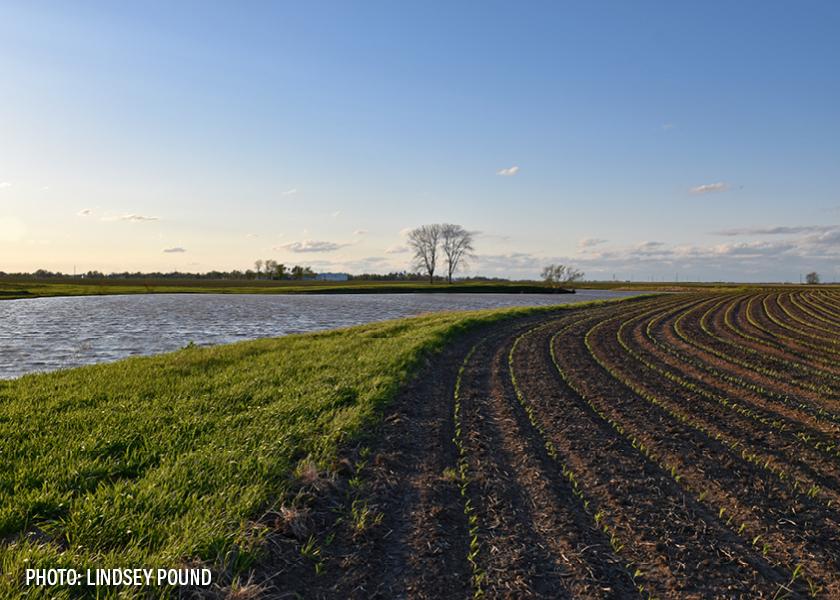Supreme Court Rules Against EPA in WOTUS Case

The U.S. Supreme Court sided with an Idaho couple in a significant environmental case against the Environmental Protection Agency (EPA) over a plan to develop a small lot near Priest Lake. This decision has national implications for water quality, ag, development and the Waters of the U.S. (WOTUS) rule.
The court was unanimous in finding that the land owned by the Idaho family was not subject to the Clean Water Act. The court was split 5-4 on the court's new “test”, which stated that only wetlands with a continuous surface connection to a body of water are covered by the law.
Related story: What’s Wrong with the Current Waters of the U.S. Rule?
The case focused on the interpretation of the 1972 Clean Water Act and asked for a clearer definition of what the law intended by giving the EPA authority to regulate WOTUS.
Michael Regan, EPA administrator, shared in an EPA press release that he's "disappointed" by the Supreme Court's ruling that "erodes longstanding clean water protections."
"[The administration] worked to establish a durable definition of ‘waters of the United States’ that safeguards our nation’s waters, strengthens economic opportunity, and protects people’s health while providing the clarity and certainty that farmers, ranchers, and landowners deserve," Regan said. "These goals will continue to guide the agency forward as we carefully review the Supreme Court decision and consider next steps."
What Supreme Court justices have to say on the WOTUS ruling
Court Justice Samuel Alito, joined by four conservative justices, wrote the opinion stating that the federal government could regulate water that has a "continuous surface connection" to major bodies of water. This ruling overturns a previous decision by a federal appeals court that supported the EPA.
Alito said the EPA’s interpretation of its powers went “too far.”
“We hold that the Clean Water Act extends to only those wetlands with a continuous surface connection to bodies that are ‘waters of the United States’ in their own right, so that they are ‘indistinguishable’ from those waters,” Alito wrote, quoting from past court opinions.
Justice Elena Kagan wrote for the court’s liberals, comparing the ruling to last term’s decision limiting the EPA’s ability to combat climate change.
“The vice in both instances is the same: the Court’s appointment of itself as the national decision-maker on environmental policy,” she wrote, joined by Justice Sonia Sotomayor and Ketanji Brown Jackson.
Justice Brett M. Kavanaugh wrote separately to object to the majority’s reading of the law. He wrote that the majority’s new test “departs from the statutory text, from 45 years of consistent agency practice, and from this Court’s precedents” and will have “significant repercussions for water quality and flood control throughout the United States.” Kagan, Sotomayor and Jackson joined Kavanaugh.
What the ag industry has to say on the WOTUS ruling
Rep. G.T. Thompson (R-Pa.) calls the ruling a "victory" for farmers, ranchers and landowners.
"The decision reaffirms the rights of property owners and provides long-needed clarity to rural America. In light of this decision, the Biden Administration should withdraw its flawed final WOTUS rule," Thompson said. "It is time to finally put an end to the regulatory whiplash and create a workable rule that promotes clean water while protecting the rights of rural Americans."
Zippy Duvall, American Farm Bureau president, echoed Thompson, saying the EPA “clearly overstepped” its authority under the Clean Water Act.
“The justices respect private property rights. It’s now time for the Biden administration to do the same and rewrite the Waters of the United States Rule,” Duvall said. “Farmers and ranchers share the goal of protecting the resources they’re entrusted with, but they deserve a rule that provides clarity and doesn’t require a team of attorneys to properly care for their land.”
Background on the WOTUS case
The case began when Michael and Chantell Sackett purchased a vacant lot in a residential subdivision in Idaho in 2004. They acquired the necessary county permits to develop the site, but the EPA argued that the land was subject to its review because it contained wetlands about 300 feet from Priest Lake.
Related story: What Bodies of Water are Considered WOTUS?
This case, having returned to the Supreme Court for the second time, was closely monitored by environmentalists, developers, and farming groups due to the ongoing debate over the extent of the EPA's jurisdiction beyond navigable lakes, rivers, and into smaller streams and wetlands.
What’s Next for WOTUS?
A court decision against the EPA, said Attorney Rafe Petersen, who represents miners, offshore wind developers and others seeking EPA permit, likely leaves the Biden administration to start all over again from scratch.
“I don’t see how they get away from that,” Petersen said. “The Biden administration is really boxed into the corner.”
The ruling trims the jurisdiction of EPA to regulate waters under the Clean Water Act to interstate and navigable waters and immediately adjacent wetlands. It is a return to the traditional understanding of what Congress passed in the early 1970s.







